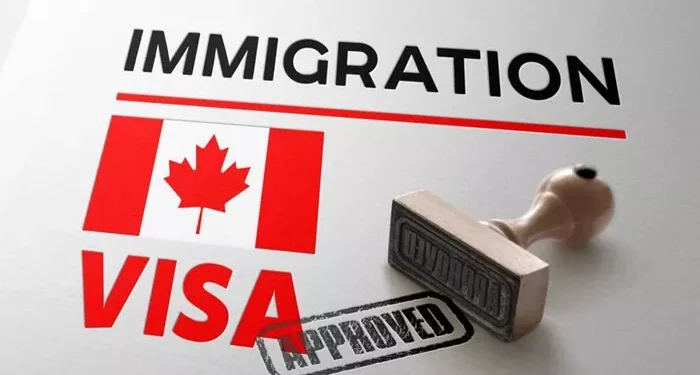If you’re planning to visit Canada from India, the first step is understanding how to apply for a visa. This guide will walk you through the process, helping you gather the necessary documents, choose the right type of visa, and ensure your application stands the best chance of success.
Types of Visas You Can Apply for from India
Before applying, it’s crucial to know which type of visa suits your purpose of travel. Here are the main categories:
1. Visitor Visa (Tourist Visa)
If you’re planning to visit Canada for tourism, family visits, or business meetings, you’ll need a Visitor Visa. It’s one of the most common types of visas for Indians visiting Canada.
2. Study Permit
If you plan to study in Canada, a Study Permit is required. It is a document issued by the Canadian government that allows you to stay in Canada while attending an educational institution.
3. Work Permit
For those looking to work in Canada, a Work Permit is essential. Depending on your job and employer, there are various types of work permits.
4. Permanent Resident Visa
If you intend to immigrate to Canada and live there permanently, you’ll need a Permanent Resident Visa. This is typically obtained through express entry programs or family sponsorship.
Steps to Apply for a Canada Visa from India
The process for applying for a Canadian visa can vary based on the type of visa. However, the general steps remain similar for most types.
1. Determine the Type of Visa You Need
As mentioned earlier, understanding the type of visa you need is the first step. Consider your purpose—whether it’s travel, study, work, or immigration—and choose the appropriate visa category.
2. Check Eligibility Requirements
Each type of visa has specific eligibility requirements. Make sure you meet all the criteria before starting your application. For instance:
Visitor Visa: You must prove that you have sufficient funds, a valid reason for visiting, and the intent to return to India after your visit.
Study Permit: You’ll need an acceptance letter from a recognized Canadian institution, proof of financial support, and a clean medical and criminal record.
3. Gather Required Documents
For most visa types, you’ll need the following documents:
Valid Passport: Your passport must be valid for at least six months from your planned date of entry into Canada.
Visa Application Form: Fill out the relevant application form, which is available on the official Canadian immigration website.
Photographs: Recent passport-sized photos that meet specific requirements.
Financial Proof: Bank statements or other proof to show you can support yourself during your stay in Canada.
Travel Itinerary: If applying for a visitor visa, include details of your flight and travel plans.
Educational Documents (for Study Permit): Offer letters, academic transcripts, and proof of funds.
Work Experience (for Work Permit): A detailed resume and proof of employment may be necessary.
4. Create an Online Account
Most Canadian visa applications are now processed online. Visit the official Canadian Immigration and Citizenship (CIC) website and create an account. Here, you can submit your application, pay fees, and track the status of your application.
5. Pay Visa Fees
The fees vary depending on the type of visa you’re applying for. You can pay the visa fees online via a debit/credit card or through other accepted methods. Be sure to check the current fee structure on the official website.
6. Submit Your Application
Once all your documents are ready and the application form is completed, submit your application through the CIC portal. Make sure all your information is accurate and complete to avoid delays.
7. Biometrics Appointment
In some cases, you’ll be required to provide biometric information (fingerprints and photographs). You’ll receive instructions on how to schedule your biometrics appointment once your application is submitted. The biometric collection is done at designated Visa Application Centers (VACs) in India.
8. Wait for the Decision
After submitting your application and biometrics, the Canadian authorities will review your case. This can take several weeks or even months, depending on the type of visa and the number of applications being processed.
9. Attend an Interview (if Required)
In some cases, applicants may be asked to attend an interview at the Canadian High Commission in India. If this is the case, you will be notified of the date and location.
10. Receive Your Visa
Once your application is approved, you will be notified. You can either collect your visa at the VAC or have it mailed to you. Be sure to check all the details on the visa before travel.
Tips for a Successful Visa Application
Be Honest in Your Application: Always provide truthful and complete information. Any discrepancies can lead to delays or even rejection.
Ensure All Documents are Clear and Complete: Missing documents or unclear forms are one of the top reasons for visa rejections. Double-check everything before submitting.
Apply Early: Processing times can be long, especially during peak travel seasons. Apply well in advance to ensure you have plenty of time.
Consult an Immigration Expert: If you find the process overwhelming, consider consulting a visa consultant or immigration lawyer who can guide you.
Common Reasons for Visa Rejection
Incomplete Application: Missing documents or details can result in delays or denials.
Insufficient Funds: You must prove that you can financially support your stay in Canada.
Failure to Prove Intent to Return: If you’re applying for a temporary visa, you must show strong ties to India, such as a job or family, to prove you will return after your visit.
Criminal Record or Medical Issues: Any criminal history or medical conditions that pose a risk to public health can lead to a rejection.
Conclusion
Applying for a Canada visa from India involves several steps, from determining the right type of visa to submitting your application and documents. Make sure you are well-prepared and follow all the instructions carefully. With patience and the right information, you’ll increase your chances of obtaining a Canadian visa successfully.
Related topics:
















